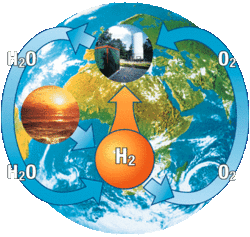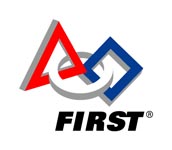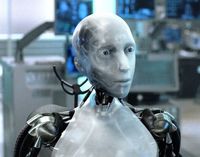Think of this as Volume 16, Number 1 of A-Clue.com, the online newsletter I've written since 1997. Enjoy.

But that's how I roll. I see around the next corner, or try to. Sometimes, as in the late 1990s, this can leave me depressed in a happy time. Sometimes, as in my posts this last year, it leaves me happy in a time of depression.
What I've seen over the last year, however, makes me confident that labor shortages are indeed in our future. Even if the scare-mongers are right and “peak oil” is just around the corner, I'm now convinced that's more of an economic event than a real one. The amount of new energy being created through efficiency, as well as through renewable technologies like solar, wind, tidal, geothermal and biofuel power, is going to be enough to see us through.
The benefits of this are many-fold. First, there's the economic benefit of having a thum b down on energy prices, a thumb that's only going to grow in strength as the cost of producing solar power (to take one example) falls below that of oil, then natural gas, then coal, over the next few years. There's the environmental benefit, the start of replacing our current carbon economy with one based on hydrogen. There's the social benefit, in which wars over resources are no longer necessary, because the Sun shines everywhere, and the winds blow, the tides roll, and we live 
Of course, these power sources have different sets of economics. For one thing, they create more jobs than what came before. Once you have an oil well drilled, once you have a field in production, the incremental labor required to keep the fuel flowing isn't great. The same is true for a solar panel. But solar panels are tiny units of power. They must be researched, they must be manufactured, they must be tested and they must be installed to deliver an economic impact.
This takes people.
So, as my late journalism professor Elizabeth Yamashita told me, back in 1978, when we sat down to our first business journalism class at Northwestern University's Medill School, I have good news for you. You're all going to have jobs.
There will not only be a lot of jobs in the new energy sector, but there will be new wealth, that must be spent on something. And those somethings will include lots of new jobs in every area of endeavor. So even if you're into video games or studies of urban predation, this applies to you. There will be money to hire you.
But there's another
My generation will soon need to be cared for. And there won't be enough people to do the job. The immigration debate is going to shift a decade from now, and we'll be worrying about how we can attract people, not repel them.
Still, this is a tech column, and all this discussion really leads to a single, one-word description of our future, which I hope gives hope, but (as usual) also brings challenges.
Robotics.
What is a robot?
Isaac Asimov saw it as a personal servant. He was wrong. It's a combination of things – intelligence, senses and mechanics with which to act on what is understood. It's not sentient, it's nothing but a machine, but one based on what was once called supercomputing power (which is now both plentiful and networked) and driven by technologies just now crawling from their infancy.
Senses, for instance. Most of us see Microsoft Kinect as an interface between a person and a game. It's more than that. It's a connection between a computer, or any intelligent machine, and its environment. It can be, it will be, the start of a robot's eyes. Same thing with Apple's Siri. Yes, it lets us talk to the computer. But it also lets the computer understand us, and it lets the computer talk back.
A good example of how this works is the man who used a robot to pet his cat. This was a common commercial robot called Nao, acting as his avatar, with Kinect as his eyes and a Wii controller as the user interface.
Primitive, yes, Single-purpose, perhaps. But it's the beginning of something.

Want to know what the hottest public company of 2011 was? Google? Amazon? Apple? Nope. Intuitive Surgical. They make a surgical robot system called da Vinci. ISGI's return to investors over the last 10 years have been five times greater than Google's. You can look it up.
That's a high-end niche. Drones are a high-end niche. But that's how computer revolutions get started. You make something to solve a problem. Then you take it, slowly at first, then at a faster-and-faster pace, down the market, toward the masses.

Remember. I'm talking about a vision that goes forward 30 years, and the picture at the top of this post is 30 years old.
You can't imagine it, can you?
But 30 years ago I began my life on the technology beat, and when I told people that we'd soon be shopping and learning and being entertained through this medium, they looked at me like I was balmy.
Yet some believed. And within three years I was writing the user manual for just such a system, and within four I was getting checks for online journalism.










